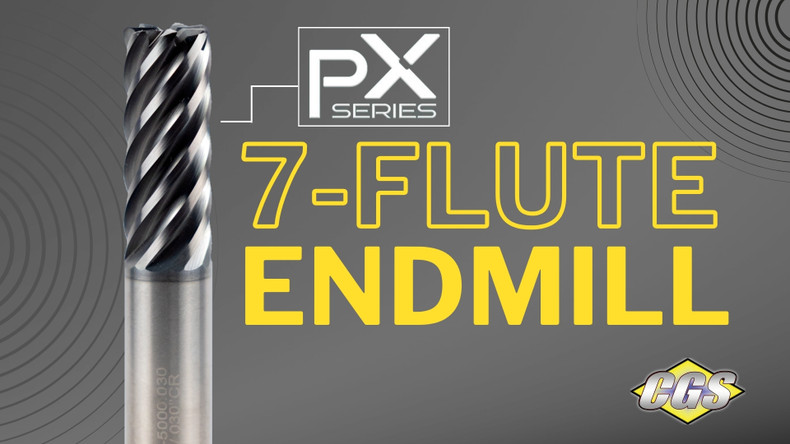A 7 flute end mill is a specific type of end mill, which is a rotary cutting tool used in milling machines to remove material from a workpiece. It has seven spiral grooves, called flutes, that run along the length of the tool. Our PX Series is one of our new lineup of high-performance, 7-Flute end mills that offers unique milling advantages and will have you a step ahead of your manufacturing project!
Here are some key characteristics of a 7 flute end mill
HIGHER FEED RATES
Due to the increased number of flutes, seven-flute end mills can typically achieve higher feed rates, resulting in faster material removal rates.
IMPROVED SURFACE FINISH
More flutes can lead to smoother surface finishes because they can effectively "polish" the surface of the material as they cut.
INCREASED RIGIDITY
The additional flutes provide more support to the cutting edge, reducing the likelihood of chatter or vibration, especially in more demanding milling operations.
ENHANCED CHIP EVACUATION
With more flutes, chip evacuation is typically more efficient, reducing the risk of chip buildup and potential tool damage.
EXTENDED TOOL LIFE
The increased number of cutting edges distributes the cutting forces more evenly, which can lead to longer tool life compared to end mills with fewer flutes.
SUITABILITY FOR HARD MATERIALS
Seven-flute end mills are often preferred for machining hard materials like hardened steels or exotic alloys due to their enhanced rigidity and ability to withstand higher cutting forces.
IMPROVED PERFORMANCE IN SLOTTING OPERATIONS
The additional flutes can help distribute cutting forces more evenly in slotting operations, reducing the likelihood of tool deflection and resulting in more accurate cuts.
While seven-flute end mills offer these advantages, it's essential to consider factors such as machine rigidity, cutting parameters, and material properties to maximize their effectiveness in specific machining applications.



